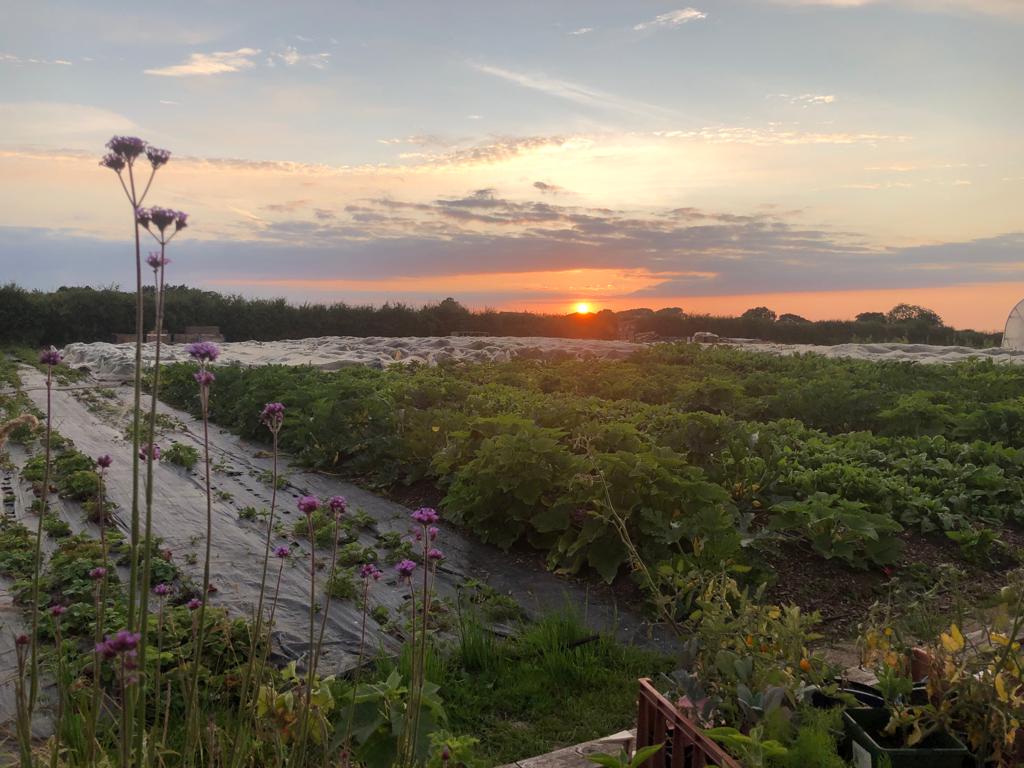Our Story
Frith is a local farm to the Hull and Beverley area; we aim to provide local people with quality food and improve the way in which food is produced and distributed. Frith places a major focus on quality: combining chemical free, fresh produce with sustainable production and distribution methods. We are developing a diverse and productive farm; and we encourage our volunteers to take on new projects.
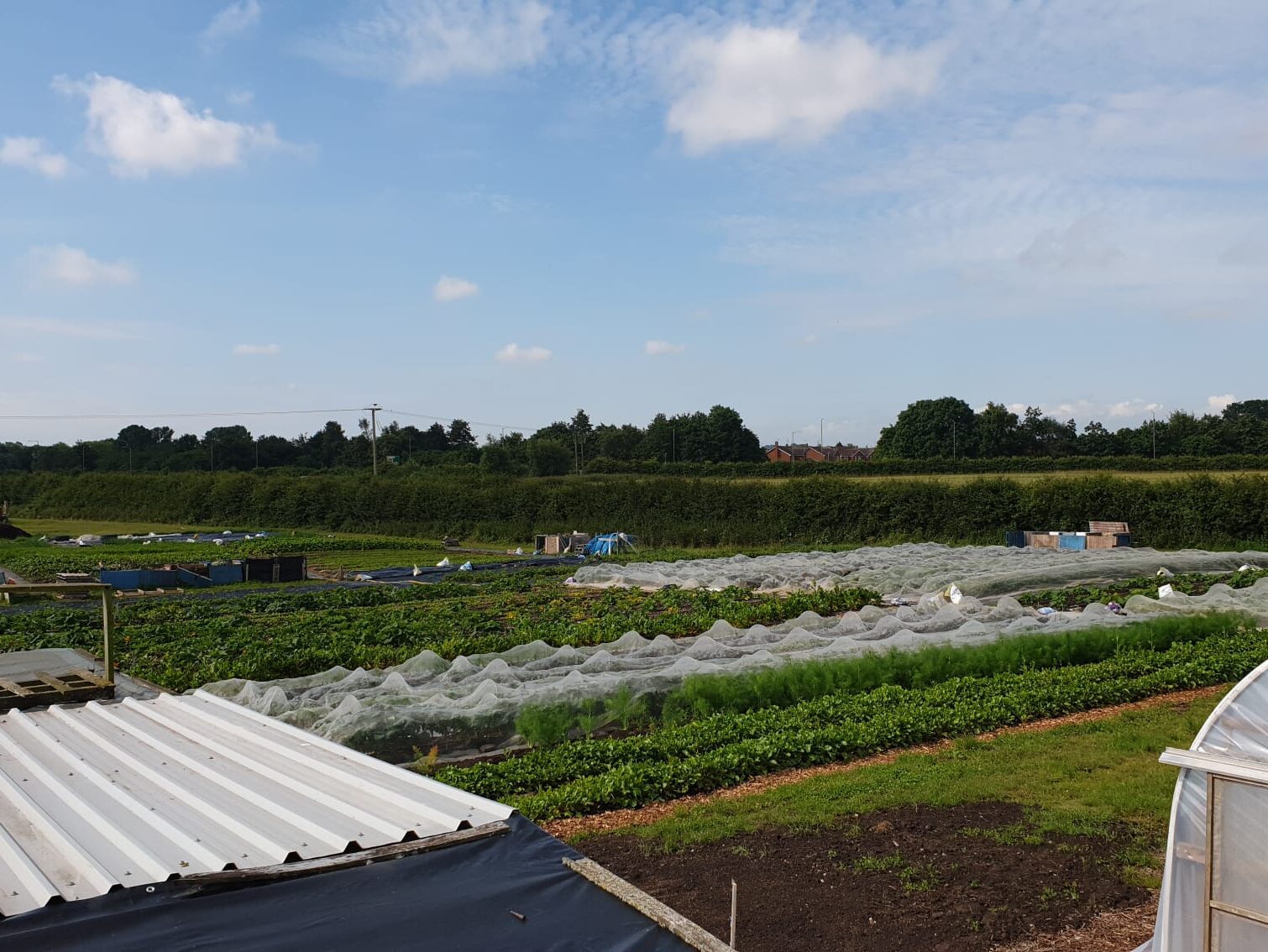
The Land
We have a farm business tenancy agreement with Molescroft farm near Beverley. Before we moved on the land it had not been farmed for 10 years and was in an environmental stewardship scheme for the past 5 years, no cultivation took place in that which resulted in a rich soil with a good structure. We have a heavy rich clay with an open structure which has enabled our success, we have implemented a no dig farming method regenerating soil health and avoiding compaction.
Molescroft Farm is family owned, farming over 600 hectares in the heart of East Yorkshire, of which more than 10% is managed primarily for wildlife and the environment. In conjunction with this, they host educational access to the farm from schools. They have been very supportive of Frith Farm, allowing us to use the land in the first place; they also help us with tractor work and have allowed us to tap into their water supply.
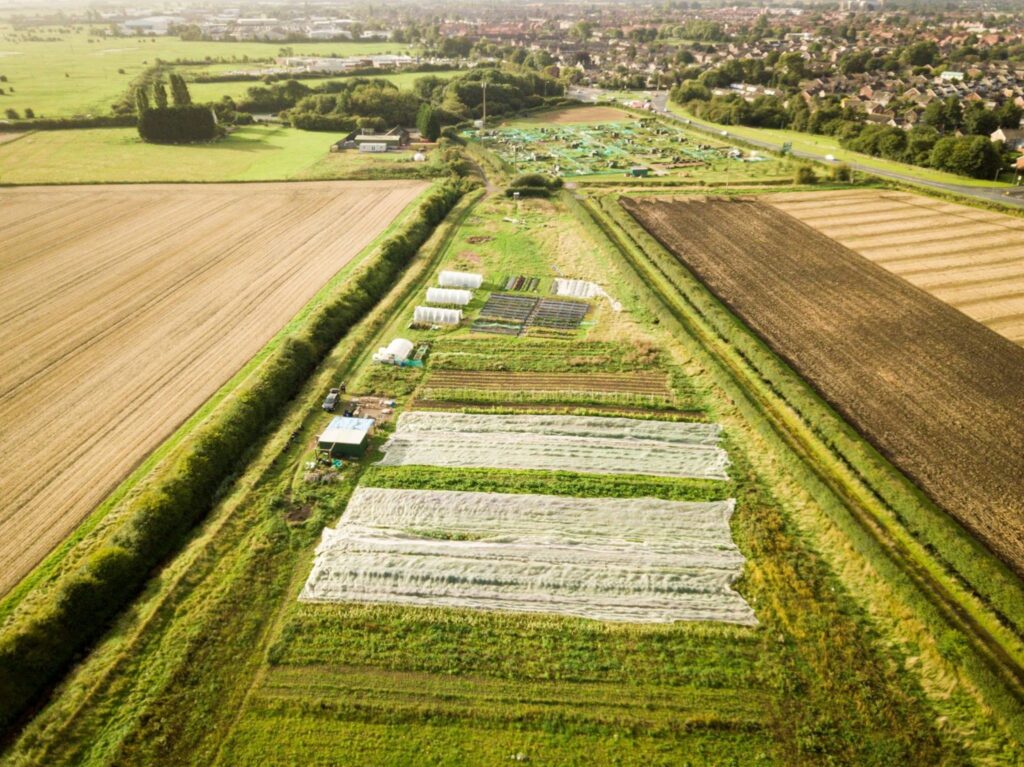
What does ‘Frith’ mean?
“The right of sanctuary has been recognised from the very earliest of times. Under a code of laws drawn up by Alfred the Great, Frith was recognised as a sanctuary. Seekers of the Frith were protected by divine law, violation of which was very severe. Among the oldest and most important of all Frith rights were those pertaining to Beverley and its Minster, the rights of the Frith existed in the distance of one league from the Minster in every direction.”
Frith means divine sanctuary; it harks back to the time when people respected divine law. If you were an outlaw or someone was out to exact revenge, you could escape to the Frith and by the grace of God you were safe, if anyone broke the rules of the Frith they would be put to death.
The land happens to be in the said Frith. Also, we are creating a beautiful and welcoming space for local people to enjoy. We thought the farm could be a sanctuary from the severity of the modern world.
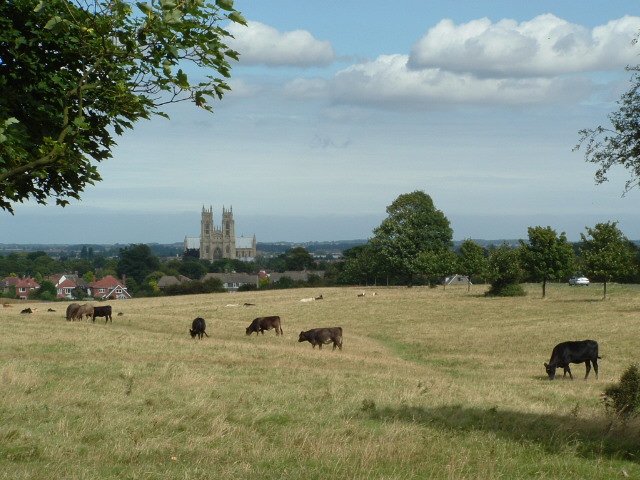
Our Chemical Free Farming Methods
At Frith we never use pesticides or chemical fertilizers. Our cultivation method mimic that of a natural ecosystem; we simply lay organic matter (locally produced compost) on top of the soil, then plant our crops into it. This is a far more sustainable way of keeping our soil fertile and healthy; it feeds soil organisms, which in turn produce everything the plant needs to thrive within a lovely, deep, rich, crumbly soil with lots of life.
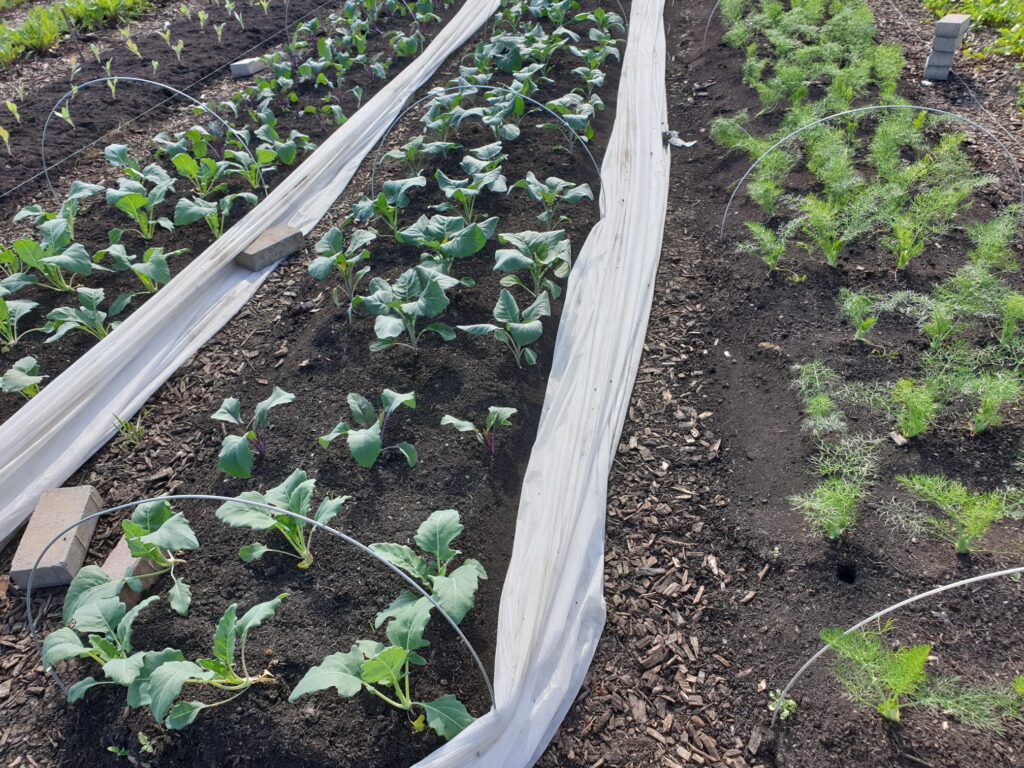
Reduced Carbon Footprint
We are always looking to reduce our carbon footprint; the compost we use is made from local organic matter and is high in carbon material such as wood chips; this decompose over time and the carbon is then locked in the soil.
Generally, large scale farms use nitrogenous fertilizers derived from the Haber Bosch process, which uses a colossal amount of fuel – around 1% of the world’s energy supply-which equates to a lot of greenhouse gas emissions. Instead of doing this we use nitrogen-fixing plants; these plants work together with soil bacteria to absorb atmospheric nitrogen. Nitrogen is stored in the plant, until it decomposes, releasing the nitrogen into the soil.
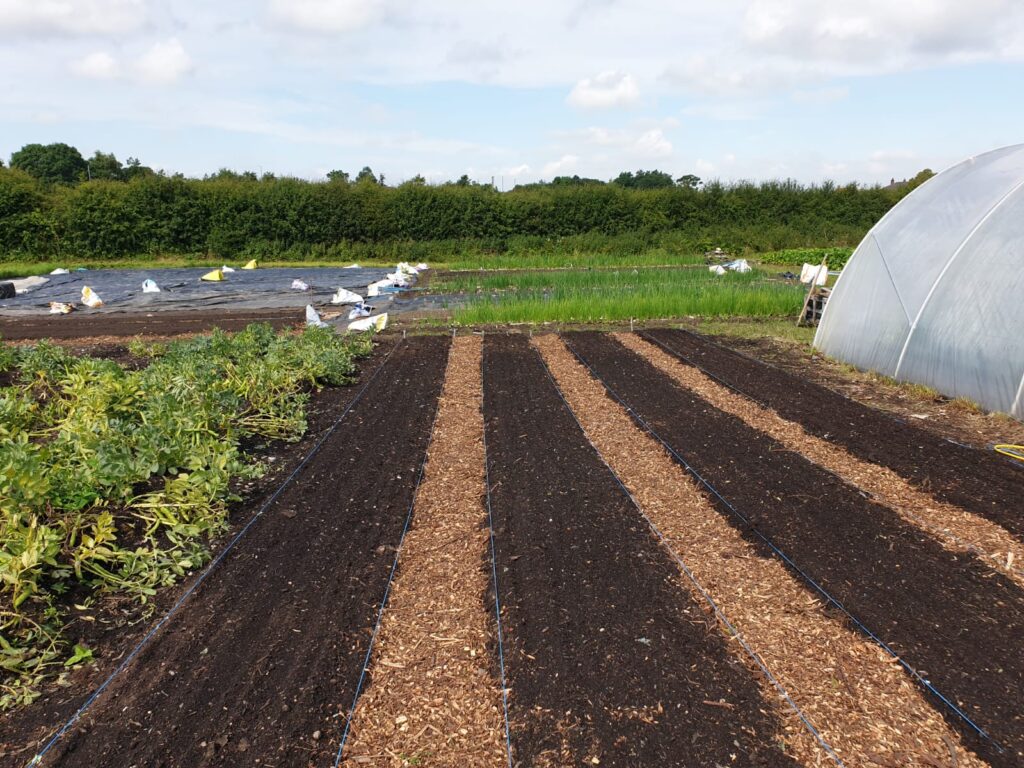
The “O” word
Legally we’re not allowed to use the “O” word because we’re not certified. Organic certification can potentially cost £750 per year and will involve extra admin work. Our aim is to provide affordable organic food: having the certification will increase the price of our produce; as we already firmly believe in organic principles, nothing will change, even if we become certified. We do not see the need to pay a third party to approve what we already insist upon. If we were veggie tycoons planning to sell our produce internationally, then we might consider the certification.
However, we are not. Our produce is exclusively for the Hull and Beverley area; we offer full transparency to our members and invite everyone to the farm to learn about our methods in the hope of developing a trusting relationship with our members.
